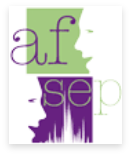Offre de thèse: Miniaturized affinity chromatography coupled to mass spectrometry for the rapid deciphering of dynamic combinatorial mixtures for the identification of therapeutic multivalent lectin ligands.
Context: Bacterial infections remain the most eminent public health challenge of the 21st century. The primary step leading to infection is bacterial adhesion to the surface of host epithelial cells, through
protein-oligosaccharides interactions. Bacterial flagellins and lectins, also called adhesins, are among the most important bacterial proteins involved in these early events of adhesion. As we approach the limits of the antibiotic era (therapeutic failures due to antimicrobial resistance), novel targets for alternative anti-infective strategies are highly desirable and anti-adhesion therapies of bacterial
diseases are very promising.The design of anti-adhesive glycoconjugates blocking adhesion provides innovative routes to anti-infectious therapeutic therapies. While an adhesin-carbohydrate interaction involving a single valence is typically in the mM to μM range, multivalent glycoconjugates (e.g. glycoclusters, glycodendrimers, glycopolymers) with high affinity (up to nM) have already found
biomedical application [1]. Dynamic Combinatorial Chemistry (DCC) has already proven to be a valuable alternative approach to synthesize such multivalent glycoconjugates through the formation
of a dynamic combinatorial library (DCL) of all possible glycoclusters (in equilibrium) obtained from reversible covalent bonds (disulfide bonds). However, the complexity of such DCL requires powerful
analytical methods to decipher the information from the DCL mixture and to identify the best ligands for a specific adhesin.
Project: To make the most of dynamic combinatorial chemistry, we will develop a powerful analytical method for the amplification/selection and identification of the best hits in a DCL mixture while reducing reagent consumption. Miniaturized affinity chromatography in-line coupled with mass spectrometry (mAC-MS) will be at the heart of the analytical strategy (i) to amplify, (ii) to simplify DCL mixtures by selecting the best binding glycoclusters, (iii) to facilitate their identification by MS and (iv) to eliminate the re-equilibration of DCL mixtures.
The DCL mixture will be deciphered on a miniaturized affinity column on which an adhesin is immobilized (home-made prepared columns). The specific interaction of a glycocluster for the adhesin
induces retention times proportional to the affinity (Ka). The glycoclusters, eluted in ascending order of affinity, will be detected and identified by mass spectrometry coupled on-line to the column.
The originality lies in the use of a mixture of glycoclusters obtained by dynamic combinatorial chemistry (DCC) and the miniaturization of the entire workflow, which allows a drastic reduction in
protein consumption (in the μg range) i.e. the targeting of proteins available in scarce amount. We recently reported a proof-of-concept of the application of mAC-MS for the identification of
glycoclusters (using Concanavalin A as an adhesin model) in a DCL of equilibrating 1,4-dithiophenols [2].
This work will be carried out in collaboration with other team specialized in the design of multivalent glycoconjugates by DCC as ligands of lectins (ICSN/ Paris Saclay).
[1] Cecioni, S. et al. Chem. Rev. 2015, 115 (1), 525–561. https://doi.org/10.1021/cr500303t.
[2] Jeanroy, F. et al. Anal. Chim. Acta 2023, 1261, 341227. https://doi.org/10.1016/j.aca.2023.341227.
Contact : Vincent Dugas : vincent.dugas@univ-lyon1.fr
